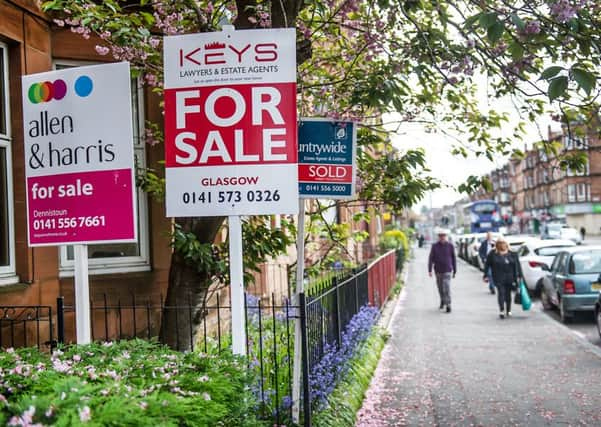Help to buy scheme failing those who need it most, claims report


Low-cost home ownership schemes are beyond the reach of almost all families on average earnings, according to the Social Mobility Commission.
It warns that the housing market is fuelling inequality and calls for the government to take radical action, including curbing subsidies for buyers whose parents can help them financially.
Advertisement
Hide AdAdvertisement
Hide AdAbout three in five first-time buyers used Help To Buy support to buy a more expensive property or one in a better area than they planned originally, the research found.
Commission chairman Alan Milburn said: “This research provides new evidence that the UK housing market is exacerbating inequality and impeding social mobility.
“While it is welcome that the government is acting to help young people get on the housing ladder, current schemes are doing far too little to help those on low incomes to become home-owners.
“The intent is good but the execution is poor. Changes to the existing schemes are needed if they are to do more to help more lower income young people and families become owner-occupiers.” The commission called on the government to aim more support at low income buyers, including through targeted subsidies. It said support should be restricted for first time buyers who have “unfettered access” to alternative sources of finance, such as capital from their family.
Help To Buy offers a range of support for potential buyers, including loans guaranteed by the state for up to 20 per cent of a property’s value – or 40 per cent in London.
The commission found the average income for house buyers benefiting from support was £41,323 while less than half of all working age households earn more than £30,000.
Just one in five Help To Buy equity loan completions were for properties worth less than £150,000, the study carried out by LSE researchers found.
Nearly half of first-time buyers using the scheme paid more than £200,000.
Advertisement
Hide AdAdvertisement
Hide AdSince 1990, the proportion of people aged 25-29 buying a home has fallen by more than half since 1990, down from 63 per cent to 31 per cent.
Report author Bert Provan said: “Most research on low-lost home ownership schemes has focused on the age profile of first-time buyers and impact on supply.
“This research looks at whether they open up home ownership to different and more diverse groups of low income households in the UK.”
The news comes just days after research by Halifax showed that first-time buyers need an average deposit of £21,565 – typically around 16 per cent of the purchase price – in order to get on to the first rung of the Scottish housing ladder.
Across the UK as a whole, an average deposit of £33,000 is needed, although the figure rises to more than £100,000 in London, according to the Halifax First-Time Buyer Review.
The average price paid for a first home is at a record high of £207,693, Halifax found.
The average first-time buyer deposit put down in the first six months of 2017 was £32,899, about 16 per cent of the purchase price.